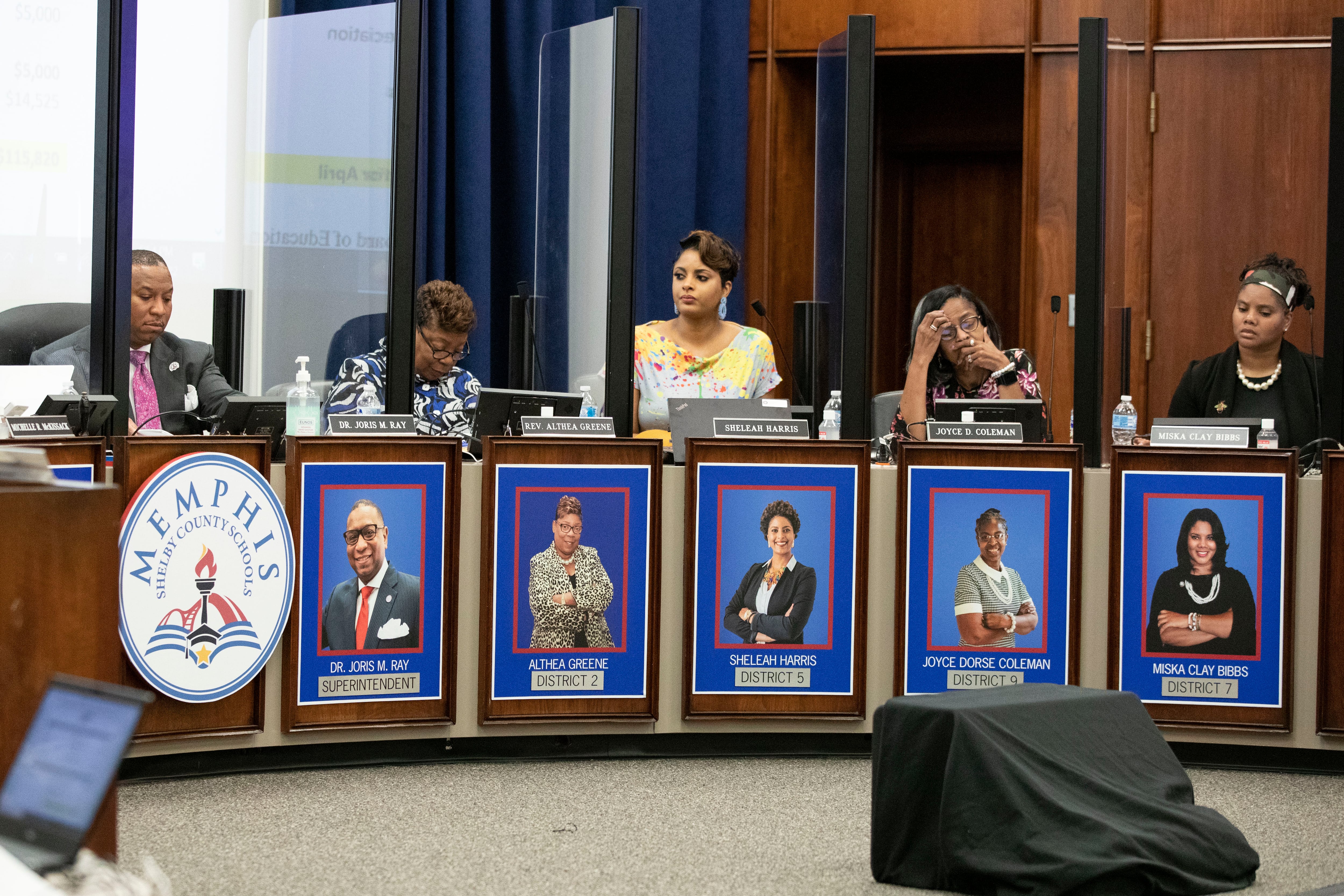Memphis-Shelby County Schools teachers would receive a 2% pay raise and $1,500 retention bonuses as part of the $1.93 billion proposed budget approved by school board members Tuesday.
Fulfilling Superintendent Joris Ray’s promises earlier this year to invest in educators, the 2022-23 budget would also funnel nearly $12 million into educators’ tiered pay scale and add a new step on the scale for principals.
The budget, passed on a 5-0 vote, also directs $3.5 million to bump up the district’s contribution to employee health insurance premiums to 70% from 66%, and $3 million to raises for substitute teachers. (Board Chair Michelle McKissack and members Sheleah Harris, Billy Orgel, and Kevin Woods were absent from the meeting.)
Tennessee’s largest school district also plans to request $55 million from the Shelby County Commission to support a host of capital improvement projects, from school renovations like replacing boilers and fire alarm systems, to a new high school in Frayser and a new stadium at Tobey Park. The district is asking the county to contribute $22 million toward the Frayser school’s projected $80 million cost.
Ahead of the vote, Ray pleaded with county commissioners for funds to address millions of dollars of deferred school maintenance and aging school buildings. Over 33 MSCS schools were built before 1950, meaning the buildings are 70 or more years old.
“It’s a shame that I graduated from high school almost 30 years ago, and I look at some of the same buildings that I entered and they’re in the same shape they were 30 years ago,” Ray said. “Enough is enough.”
The investment in schools, Ray said, is essential to the district achieving its mission to improve literacy in the community and provide a world-class education to Memphis’ children, most of whom are students of color from low-income families.
“To put it plainly, I want us to build schools, not jails,” he said.
MSCS will formally present the proposed budget to county commissioners on Wednesday. But the $55 million ask for capital projects may face an uphill battle: Shelby County Mayor Lee Harris has proposed putting $28 million toward school construction funding. And last year, district leaders had to go back to the drawing board after the commission allocated just $22.3 million of its capital improvement budget to MSCS — less than half the district’s $55 million request.
Overall, the proposed budget for fiscal year 2023 represents a nearly 15% decrease from last year, which marked the district’s largest proposed budget in history.
Facing declining enrollment, MSCS is set to receive about $18 million less from the state this year based on student counts from 2020. The district continues to grapple with enrollment dips: For the second year in a row, enrollment shrank by nearly 4,000 students. That represents a decrease of just over 3% from 2020-21.
For the most part, though, the district has been able to weather the decreased state funding, even with some new expenditures, said Toni Williams, the district’s chief financial officer. The district received nearly $11 million more from the county than last year, thanks to higher-than-expected sales tax receipts. And the district has been able to make cuts in some areas, including $10.6 million from central office positions and equipment, Williams said. Because of declining enrollment, the district will be able to save about $3 million on textbooks and $20 million on staffing.
Meanwhile, MSCS has been able to shift some budgeted expenditures from the general fund to other areas. For example, $15 million for summer programming will be covered by grants, Williams said, and federal COVID relief programs for education, known as ESSER, will fund $6 million in academic supports, $590,000 of health and safety initiatives, and $337,000 for social-emotional services.
Williams also touted how the district is currently spending $776 million of ESSER funding. Those funds have gone toward expanded tutoring, summer learning, investments in technology, facility upgrades, and extra support for the district’s most vulnerable student populations, such as English language learners and those with disabilities.
Correction: A previous version of this story incorrectly said a new high school in Frayser will cost $22 million. The total projected cost is $80 million, and the district is requesting $22 million from the county for the project.
Samantha West is a reporter for Chalkbeat Tennessee, where she covers K-12 education in Memphis. Connect with Samantha at swest@chalkbeat.org.





